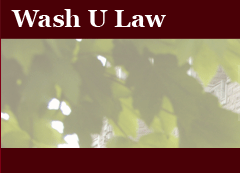When Litigation Is Not the Only Way: Consensus Building and Mediation As Public Interest Lawyering
Publication Title
Washington University Journal of Law & Policy
Abstract
British social philosopher Stuart Hampshire recently articulated the fundamental and foundational principles of the modern conflict resolution movement (and I do call it a movement). He asserted that, “there will always be a plurality of different and incompatible conceptions of the good and there cannot be a single comprehensive and consistent theory of human virtue.” Correspondingly, “our political enmities in the city or state will never come to an end while we have diverse life stories and diverse imaginations.” Hampshire, a socially progressive, socialist philosopher hoped to articulate universal conceptions of the good. In his lifetime of reflection on this important subject, Hampshire concluded that at best we know the bad things–the evils we want to eliminate–when we see them, but we cannot agree on either the means to eliminate those evils or the content of the good we seek to promote. One person’s equitable re-distribution of wealth is another’s person confiscation of justly held and earned property. In the evening of his productive years of contemplation, Hampshire adopted a procedural or process-driven social philosophy that I want to discuss today. Hampshire has named and described the moral articulation of the approach I have been arguing for, teaching and practicing with for much of my career in seeking social justice through law. Today we will explore how processes other than litigation can serve the public interest, at least as well, if not better than, the more commonly used methods of lawsuits, litigation and commanded rule-changes.
Recommended Citation
Carrie Menkel-Meadow,
When Litigation Is Not the Only Way: Consensus Building and Mediation As Public Interest Lawyering,
10
Wash. U. J. L. & Pol’y
37
(2002),
https://openscholarship.wustl.edu/law_journal_law_policy/vol10/iss1/4
